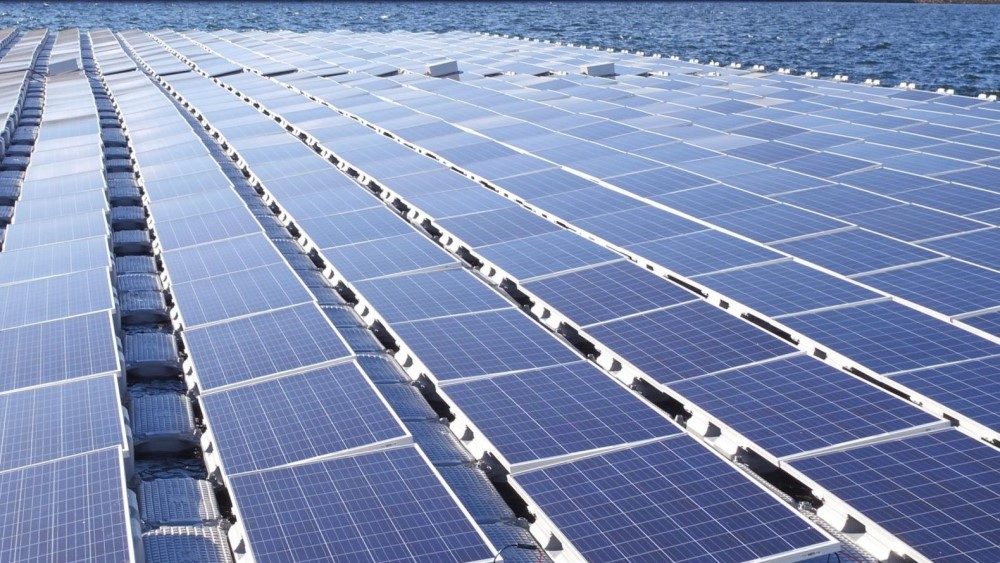Endesa launches project to recover abandoned olive groves in Abrantes
The aim is to "recover 10,000 olive trees from the more than 200,000 hectares of abandoned olive grove in Abrantes."
The Portuguese unit of Spain’s Endesa on Monday launched an agribusiness project to recover abandoned olive groves in Abrantes, in south-central Portugal, while the managing director of Endesa Portugal stated that the new Pego power plant is to start producing energy in 2025.
“We are on schedule: we started a month ago all the training [and professional reconversion] projects that were [planned] within the auction [of the tender for the Pego power plant], with great success and a lot of demand, and they will continue for another year and a half, for what we maintain 2025 as the year in which the central will be functioning,” Guillermo Soler told Lusa on the sidelines of the presentation of the initiative ‘Sponsor an Olive Tree’ that took place near the Oliveira do Mouchão – believed to be the oldest olive tree in the Iberian Peninsula, at 3,350 years old – in the parish of Mouriscas, in Abrantes municipality, in the district of Santarém.
The ‘Sponsor an Olive Tree’ initiative is a partnership between Endesa and the NGO Apadrina un Olivo, and aims to recover abandoned olive trees, promoting the production of olive oil in the traditional way and also of preserves from local products, as part of the socio-economic plan included in the Fair Transition Project for Pego, which was awarded to Endesa in 2022.
The aim is to “recover 10,000 olive trees from the more than 200,000 hectares of abandoned olive grove in Abrantes,” Soler said, highlighting also the planned creation of 27 jobs associated to a project inspired by a rural entrepreneurship model that began in 2014 in Oliete, Teruel, in Spain, to “generate sustainable rural development in sparsely populated areas.”
The ‘Sponsor an Olive Tree’ project envisages the launch of an extra virgin olive oil brand and the construction of its own olive oil mill, the creation “in the medium term” of a canning factory to restore the area’s vegetable gardens and promote local products, as well as a composting unit in the Abrantes region “to encourage the settlement of the rural population” in the area.
“This unique initiative in Portugal is a clear example of how we want to transform the Abrantes region to build, alongside a great energy development, future opportunities linked to the territory,” said Soler, noting that “the promotion of agribusiness leaves added value in the local community and allows the opening of new opportunities for the population.”
According to the Endesa Portugal managing director, “this is the first step of the socio-economic project that commits Endesa to a fair transition after the conclusion of the Pego power plant operation.”
The mayor of Abrantes, Manuel Jorge Valamatos, who was present at the session, said of the project that it “will enhance the creation of synergies between olive oil products and help leverage all the resources installed in the county” in a sector that is considered “strategic” for the municipality.
Soler, when questioned about the fate of the cooling towers of the Pego plant – which generated energy from coal up until 2021 and which continues to use natural gas – said that they “will not be dismantled” in the near future, recalling the risks associated with the demolition of such structures and that the combined-cycle gas-fired plant is to continue to operate there until 2036.
“The towers are not going to be dismantled in the short term due to the fact that we have the combined cycle still running and demolition is a risky operation,” he said. “We are going to keep them and they are going to be an icon of the region. At the moment they are not going to be dismantled.”
After the closure of the Pego thermal power plant in 2021, Endesa – through its subsidiary Endesa Generación Portugal – in 2022 won the public tender for the ‘fair transition’ of Pego with a project that combines the hybridisation of renewable sources and storage in what is to be the largest battery in Europe, with social and economic development initiatives.
The project foresees an investment of €600 million, the professional retraining of 2,000 people and the creation of 75 direct jobs, with a commitment to give preference to taking on workers from the former coal plant.
With its victory in the bidding, Endesa obtained a right to a 224-MVA connection to the Public Service Electrical Network (RESP), in a project that foresees the installation of 365 MWp of solar energy, 264 MW of wind energy, with integrated storage of 168.6 MW, and a 500 kW electrolyser for the production of green hydrogen.
Endesa is Spain’s largest electricity generating company and number two in gas distribution in Spain.
In Portugal, in addition to the Pego plant, it also has projects for solar energy generation in the Algarve and at the Alto Rabagão dam, in Montalegre.
Endesa last year made a profit of €2.541 billion, up 77% on 2021.


